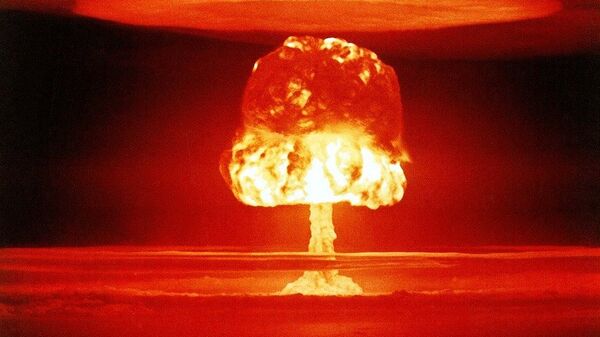In an opinion piece published on The Conversation, a website, Joshua Pearce, Professor of Materials Science and Engineering at Michigan Technological University, cautioned that a possible nuclear war may prove “devastating for the US, even if no one shoots back”.
The author referred to his study, which focused on “how damaging a nuclear attack using several nuclear weapons would be for the aggressor nation”.
In this vein, he urged “every nation willing to use its nuclear weaponry” to determine “whether it has the ability to survive the problems of its own making”, including those related to a so-called “nuclear winter”.
This is seen as a prolonged global climatic cooling effect which is preceded by “multiple nuclear weapon strikes cause cities to burn, putting massive amounts of smoke into the upper atmosphere and blocking sunlight for years”, according to Pearce.
As far as the US is concerned, the scientist predicted a severe annual fallout from the scenario of the American military using 1,000 nuclear warheads against an adversary like Russia or China, in a scenario where the adversary is unwilling or unable to retaliate.
Under the scenario, Pearce argued, “the US would see about 140,000 Americans die, due to the burning of cities in other countries, causing environmental catastrophe at home from lower food production.
He added that “if the US attempts to expand our stockpile as recently proposed and then used 7,000 nuclear weapons, even if everything went perfectly our way, at minimum 5 million Americans would starve”.
Moscow Warns of a Nuclear War Risk
His remarks followed Russian Deputy Foreign Minister Sergei Ryabkov stating last year that the situation pertaining to strategic stability “keeps growing worse” and that “there is a risk of a nuclear war breaking out, even if the sides have no intention of starting a nuclear conflict”.
Ryabkov also said that Washington appears to be evading working with Moscow on the New Strategic Arms Reduction Treaty (START).
"The actions of our Western colleagues are becoming increasingly emotional, at times — rather aggressive", he said, adding that the agreement "may well become the next victim of the US drive to free itself in the field of arms control".
The New START was signed between Russia and the US in April 2010, imposing limits on the number of both countries' nuclear missile launchers, inter-continental ballistic missiles, strategic bombers and deployed warheads. The deal is set to expire in 2021, but there is an option to extend it until 2026.



